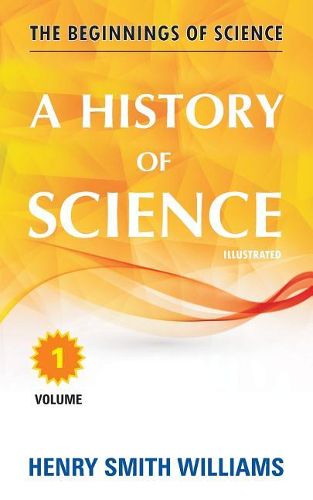Readings Newsletter
Become a Readings Member to make your shopping experience even easier.
Sign in or sign up for free!
You’re not far away from qualifying for FREE standard shipping within Australia
You’ve qualified for FREE standard shipping within Australia
The cart is loading…






The history of science is the study of the development of science and scientific knowledge, including both the natural sciences and social sciences. (The history of the arts and humanities is termed as the history of scholarship.) Science is a body of empirical, theoretical, and practical knowledge about the natural world, produced by scientists who emphasize the observation, explanation, and prediction of real world phenomena. Historiography of science, in contrast, studies the methods by which historians study the history of science. Empirical investigations of the natural world have been described since classical antiquity (for example, by Thales and Aristotle), and scientific method has been employed since the Middle Ages (for example, by Ibn al-Haytham and Roger Bacon), modern science began to develop in the early modern period, and in particular in the scientific revolution of 16th and 17th century Europe. From the 18th century through late 20th century, the history of science, especially of the physical and biological sciences, was often presented in a progressive narrative in which true theories replaced false beliefs.
$9.00 standard shipping within Australia
FREE standard shipping within Australia for orders over $100.00
Express & International shipping calculated at checkout
The history of science is the study of the development of science and scientific knowledge, including both the natural sciences and social sciences. (The history of the arts and humanities is termed as the history of scholarship.) Science is a body of empirical, theoretical, and practical knowledge about the natural world, produced by scientists who emphasize the observation, explanation, and prediction of real world phenomena. Historiography of science, in contrast, studies the methods by which historians study the history of science. Empirical investigations of the natural world have been described since classical antiquity (for example, by Thales and Aristotle), and scientific method has been employed since the Middle Ages (for example, by Ibn al-Haytham and Roger Bacon), modern science began to develop in the early modern period, and in particular in the scientific revolution of 16th and 17th century Europe. From the 18th century through late 20th century, the history of science, especially of the physical and biological sciences, was often presented in a progressive narrative in which true theories replaced false beliefs.